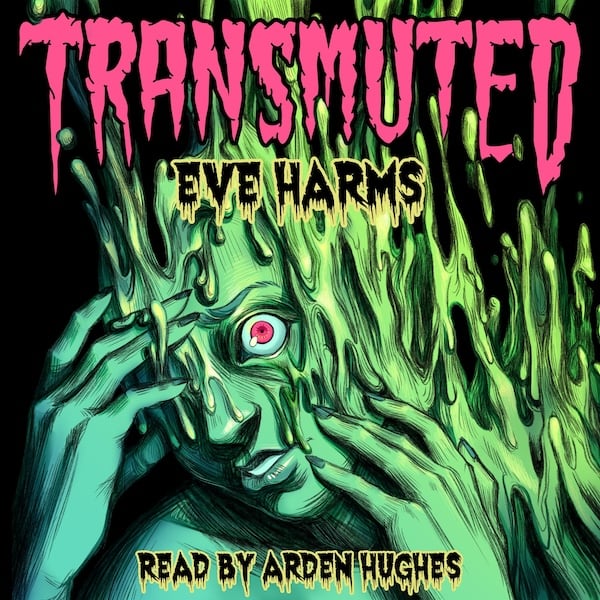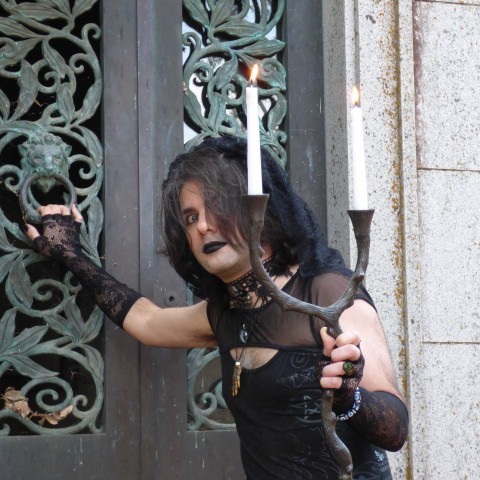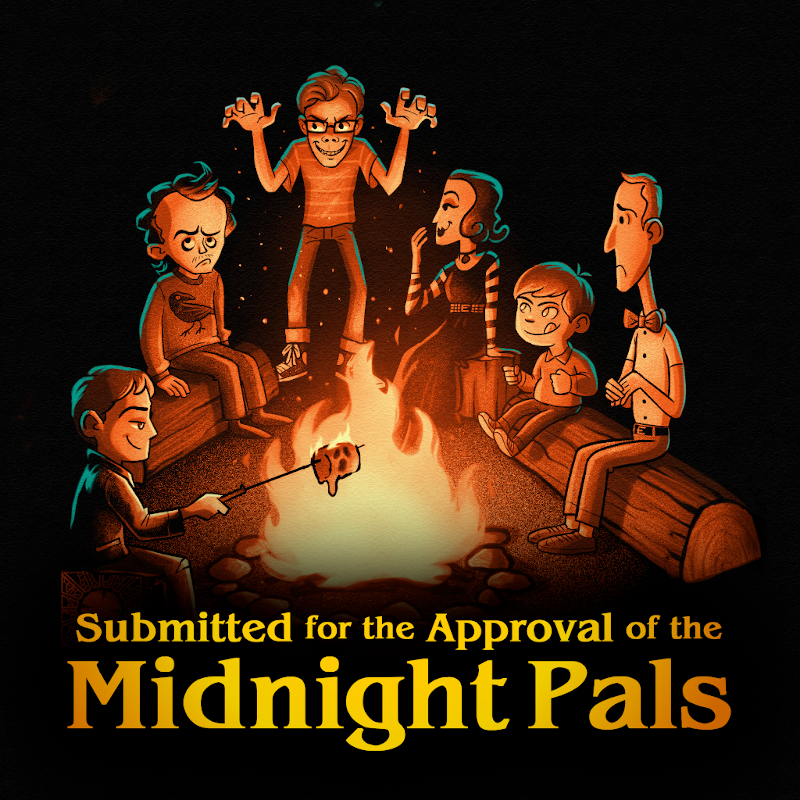Transmuted audio release, Midnight Pals tribute
Herein I reveal the hidden generosity of the hilarious micro-fiction series The Midnight Pals and announce the release of the TRANSMUTED audiobook
👋 If you’re new here, I’m Eve Harms, fiction writer of horror, bizarro, and exploitation tales. Mostly recently I co-wrote CHASERS, a horrific and powerful splatterpunk thriller about a trans woman discovering a peephole in her new apartment. It’s available wherever books are sold.
I also make zines, apps, and other precious and useful things. This newsletter is where I share my thoughts on art, creativity, and my many other esoteric interests.
Dear Reader,
In this issue of Esoteric Eden, I wrote about my favorite hidden aspect of the excellent micro-fiction series The Midnight Pals.
But first... the TRANSMUTED audiobook has officially been released!
The Transmuted audiobook is live and available at your favorite audiobook retailers, and most exciting of all... LIBRARIES.
I would love it if you snagged a copy using the links below, but it would be even more meaningful to me if you requested it at your local library. To have the book in as many libraries as possible would be a dream come true. Please check out my post on how to request TRANSMUTED at your local library.

Now available! Listen to a sample on YouTube here.
|
This audiobook was self-produced and a labor of love. The narrator, trans-feminine voice actress Arden Hughes, and I spent countless hours working together to bring the character of Isa to life authentically in audio form — and the result is a dynamic, vulnerable, and daring rendition of the story.
In other writing news, I'm drafting a new book and putting the finishing touches on a manuscript with my collaborator Mariah Darling. We're getting ready to shop it around to publishers, so hopefully the finished novella will be in your hands soon. I think you'll really love it. Not much else to report, so let's get to the article...
The Hidden Generosity of The Midnight Pals
In The Midnight Pals, created by Bitter Karella, greats of the horror genre like Stephen King, Edgar Alan Poe, Clive Barker, and Mary Shelley sit around a fire to converse and tell scary stories. The work takes the form of a series of humorous dialogues posted on social media, collected in books, and also as a hilarious must-listen podcast that features a full cast of voice actors.
Each of the pals have their own distinct parody personality, and the stories they "submit for the approval of the Midnight Society" touch on tropes of the genre, the storyteller's work, light philosophical topics, and even current events.

I love The Midnight Pals. The guffaw-inducing dialogues and biting satire with the greats of the horror genre are reason enough to subscribe and enjoy Karella's posts, or purchase one of her books, but there's a deeper and more beautiful aspect of the work that personally resonates with me, and I want to highlight it.
Back in my college days, one of my senior studio classes was in performance art. In class, my beloved professor and mentor Elizabeth Stephens made sure we understood that we weren't creating our work on our own; we were a part of a lineage of artists. Her teachers and mentors were a part of the Fluxus movement, a cohort with artists that included Nam June Paik, Yoko Ono (yes that Yoko Ono but no not that Yoko Ono), George Maciunas, and John Cage.
And Fluxus was in turn inspired by Neo-Dada and so on. As students of Stephens, we too were a part of that lineage of artists. In class, we directly made work in conversation with our artistic ancestors and were encouraged to consider ourselves among them.

This idea made a big impression on me, and I do think it's important for artists (including horror fiction writers) to see themselves within a lineage. Our writing is not made in a vacuum, it's inherently in conversation with the work of authors who came before us and our peers. It's important for us authors to consider ourselves in this larger conversation and be reminded that we're saying something with our work, not merely manufacturing an entertainment product for consumption.
And with The Midnight Pals, Karella creates a space where the artistic lineage of horror authors can be crystalized and witnessed. Contemporary authors, both early and late in their career are invited to the campfire and appear in dialogues with legends of the genre like Poe, King, Shelley, Jackson, and Lovecraft. Though they aren't the "regulars" that every horror fan knows, they have the same place around the campfire as any of the other pals. Even I have appeared in a few episodes.
Karella lovingly satirizes these lesser-known authors in the same way as the greats, creating personas around qualities and themes she's found in their work. This brings more attention to writers who are often from marginalized groups that have been historically excluded from the literary "canon", while reinforcing the idea of artistic lineage.

And it's our lineage, not one born of critics and history books, or passed on in inaccessible MFA programs, but of the scrappy group of freaks with diverse backgrounds and fantastic perversions who participate in the indie horror community. With the considerable platform that Karella has built on her humor and wit, she's helping to shape the landscape of horror to be more inclusive without disregarding who came before us.
Writing fiction can often feel like a solitary pursuit. Horror writing in particular tends to attract misfits who feel alienated from the broader culture. We pour our time and efforts and vulnerabilities into our manuscripts for months or even years at a time, hoping that someone will care about what we have to say, hoping that someone will read it at all. Midnight Pals reminds us that we aren't alone, we're sitting together by the campfire.
Thanks for reading,
Eve
P.S. You may have noticed that my newsletter is no longer on substack. I left due to their insistence on taking literal Nazi money in the name of "free speech." No shade on anyone who stayed, but I no longer felt welcome. Unfortunately, leaving has basically killed my organic growth. So if you've ever enjoyed one of my emails, please consider sharing your favorite one from the archives with some one who you think may like it.
Add a comment: